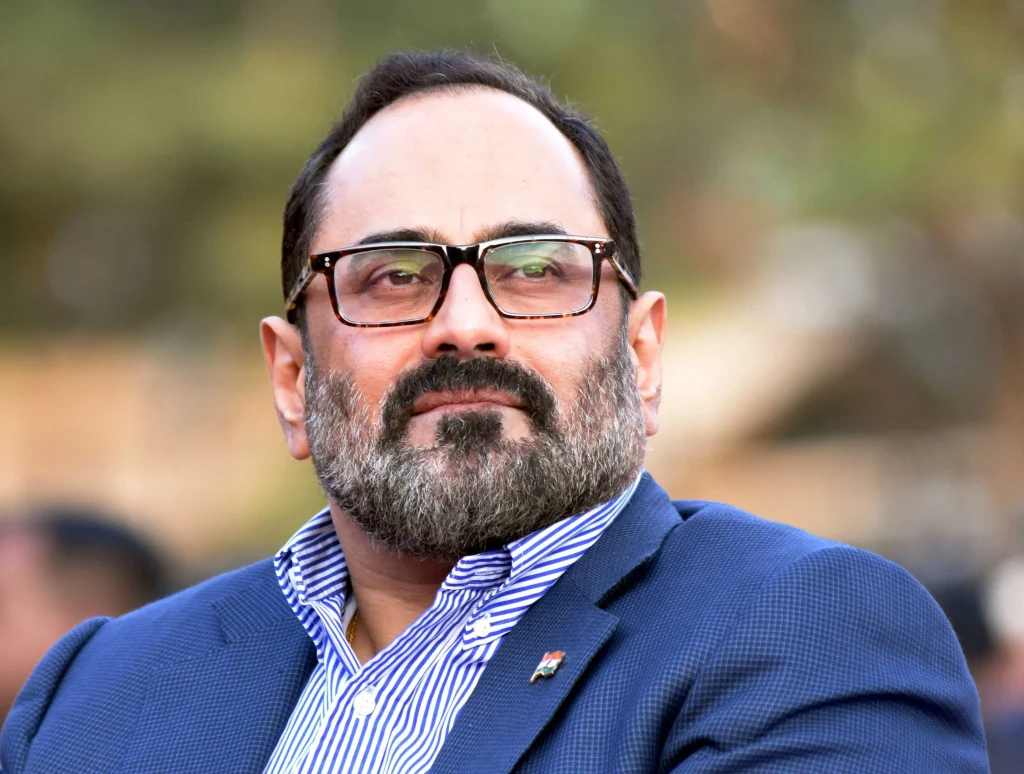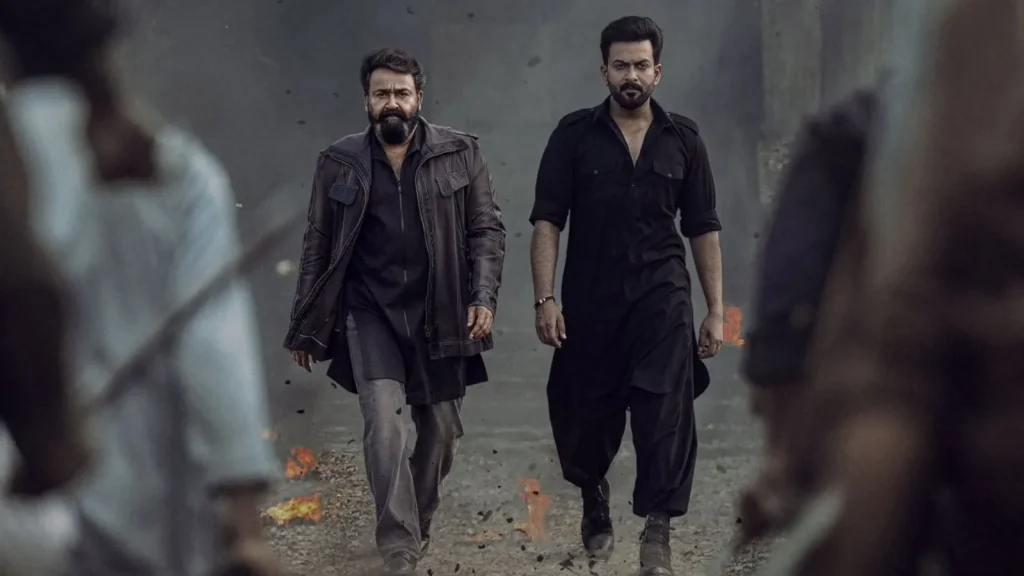Rajeev Chandrasekhar, the newly-appointed president of the Bharatiya Janata Party (BJP) in Kerala, has hinted that the ongoing controversy surrounding the Mohanlal-starrer L2: Empuraan may have been a carefully orchestrated publicity stunt by the film’s producers. Chandrasekhar, a former Union Minister, suggested that the controversy might have been manufactured intentionally to boost the film’s visibility.

A Manufactured Controversy?
In a weekly podcast, Chandrasekhar pointed out that the controversy over L2: Empuraan didn’t seem like a genuine issue at first, adding that it could have been a deliberate move by the film’s producers to draw attention. He specifically noted that Kerala Chief Minister Pinarayi Vijayan’s involvement in the matter escalated it into a political row, which helped the film gain more attention. “I did not think it was a controversy in the beginning. This is a manufactured controversy. Perhaps it was a strategy of the producers to give it visibility and publicity,” he said.
Chandrasekhar’s Decision Not to Watch the Film
Initially, Chandrasekhar had planned to watch L2: Empuraan because it was a sequel to the hit film Lucifer. However, after learning that the film was undergoing revisions—such as the removal of 17 scenes, including some related to violence and the 2002 Gujarat riots—he decided against watching it. “I decided not to see it now because Mohanlal himself said that he felt upset. When Mohanlal himself has problems with his movie, why should I watch it?” he explained. He emphasized that if the actor was unhappy with the product, he would not support it by buying a ticket.
Chandrasekhar’s comments come amidst heightened criticism from right-wing groups and social media users, particularly those associated with the Sangh Parivar. These critics accused the film of misrepresenting their faith and raising political concerns. Some scenes, such as those referencing the Gujarat riots, sparked widespread backlash.
Mohanlal’s Regret and the Film’s Revisions
Acknowledging the discomfort some audiences felt, Mohanlal publicly expressed regret over certain scenes in the film. He assured fans that the makers had decided to remove the contentious references. As a result, the producers of L2: Empuraan announced that they would revise the film and remove the problematic scenes, including those related to riots and violence against women.

Chandrasekhar, however, remained firm in his criticism of the film’s narrative. He stressed that any movie that distorts the truth to build a story is bound to fail. He also stated, “A movie should be watched as a movie. It can’t be seen as history.” While he expressed disappointment with the film’s handling of sensitive topics, he said that if the filmmakers released a revised version, he might reconsider watching it.
Political Implications and the Chief Minister’s Role
Chandrasekhar also discussed the involvement of Kerala Chief Minister Pinarayi Vijayan, who had watched L2: Empuraan with his family. “Why should I fuel Pinarayi Vijayan’s controversy?” Chandrasekhar remarked, expressing his reluctance to engage further in a politically-charged issue.
He also noted that he had initially supported the idea of seeing the film as a work of art, but after learning about the revisions, his stance shifted. “I had watched Lucifer and liked it. I had said that I would watch Empuraan when I heard it was a sequel, but now I have come to know that the movie is undergoing re-censorship.”
Box Office Performance Amidst Controversy
Despite the controversies, L2: Empuraan has been a box office success. The film had a massive release with 4,500 shows across 746 screens in Kerala on its opening day. As of Monday, the film had grossed an estimated ₹70 crore at the Indian box office.
While the movie’s commercial success seems unaffected by the controversies, the situation has sparked a debate on the responsibility of filmmakers in addressing sensitive issues and the role of politics in the film industry. Chandrasekhar’s remarks highlight the growing tension between cinema as entertainment and its potential political implications.
